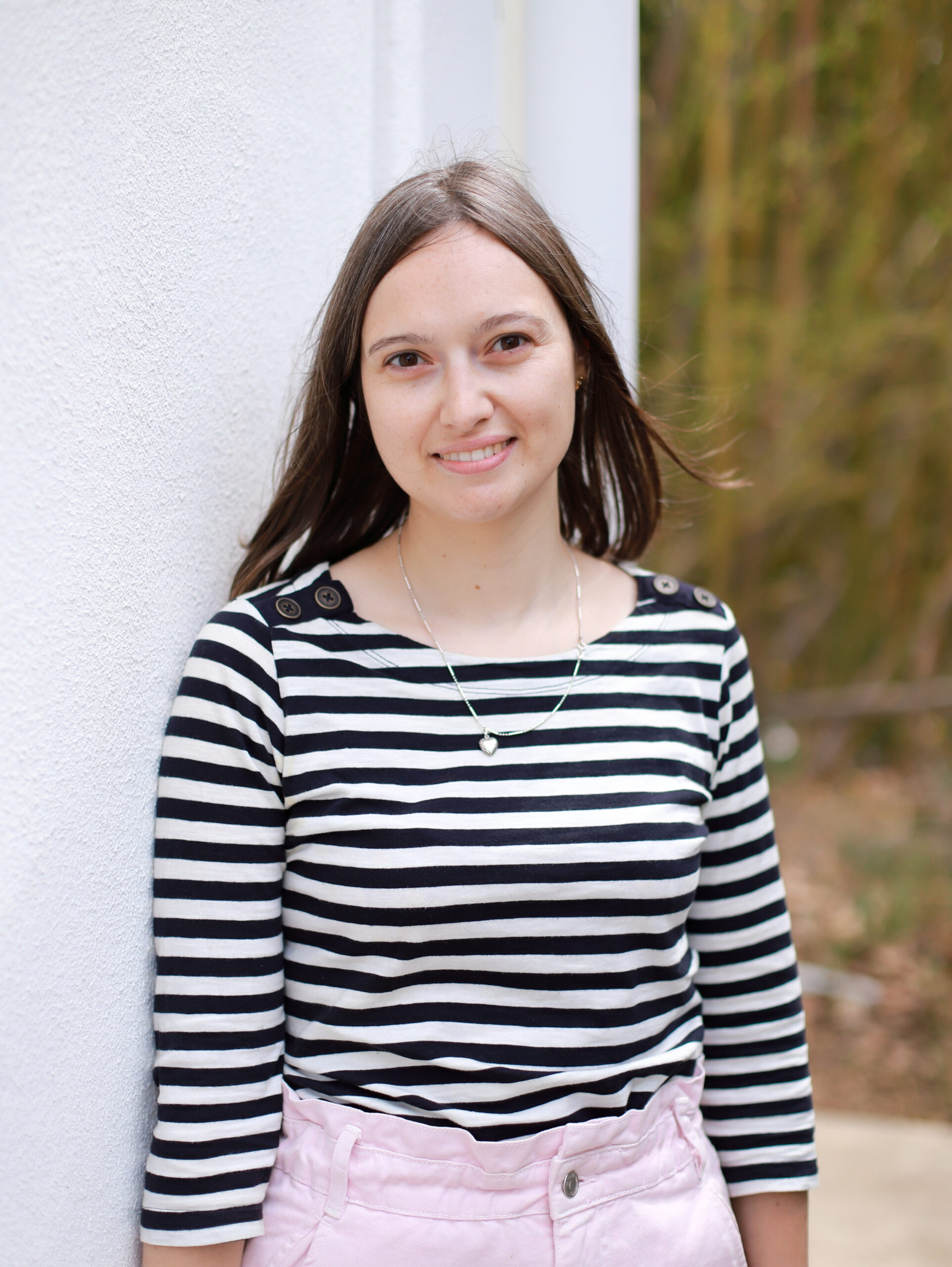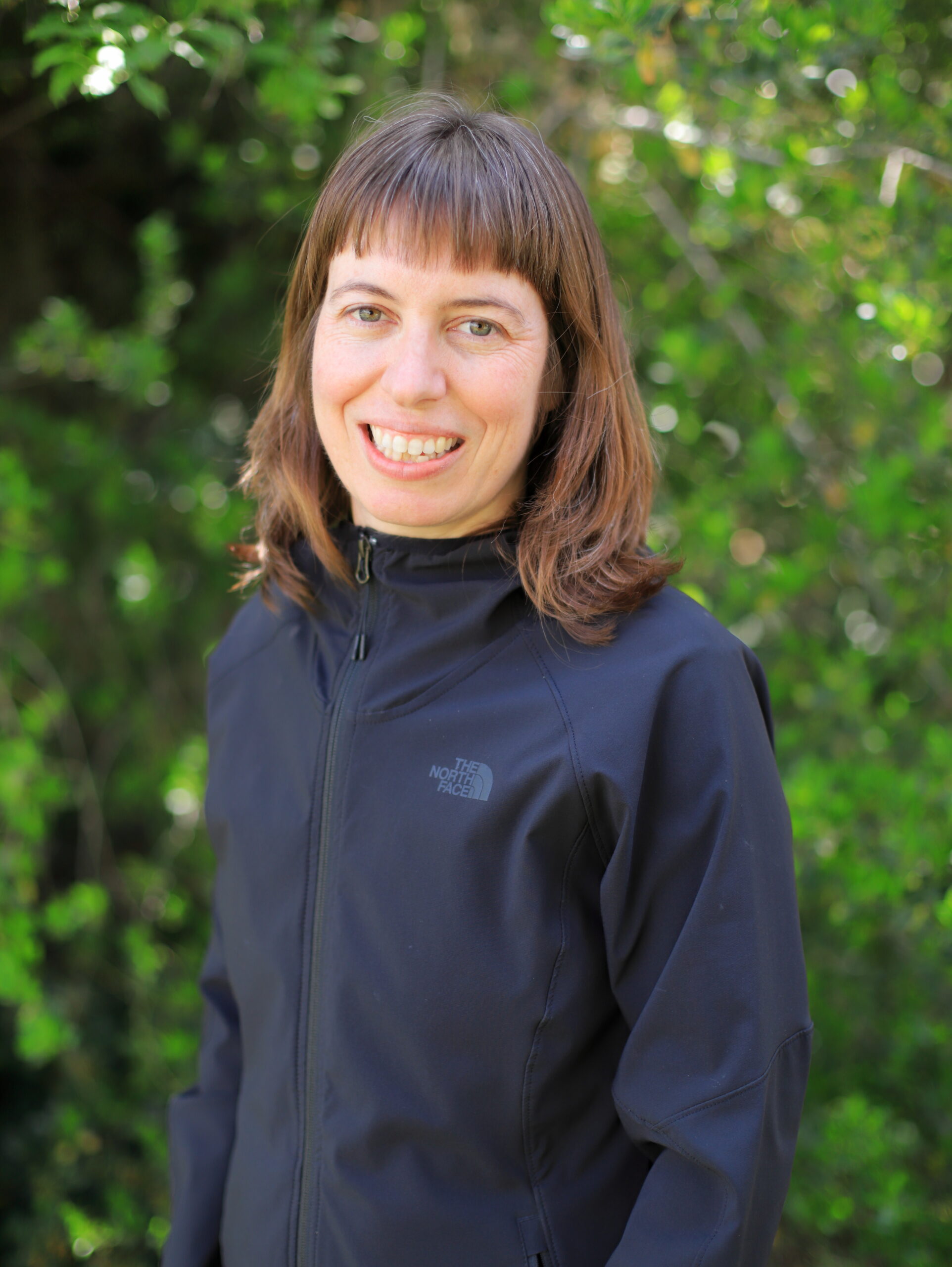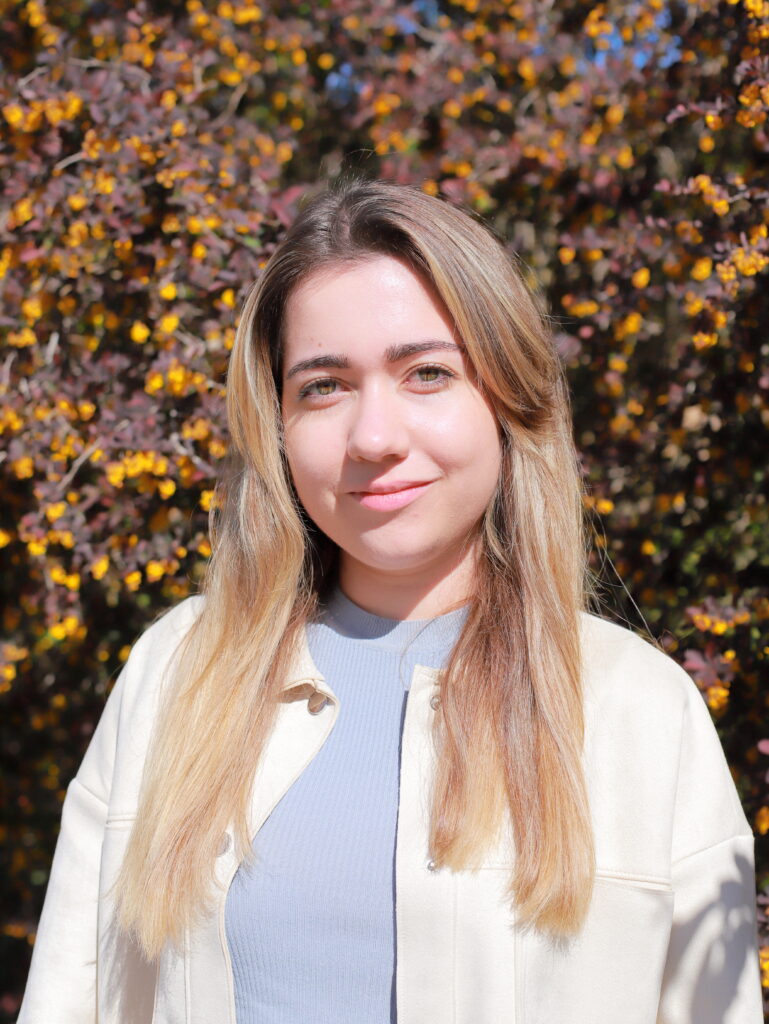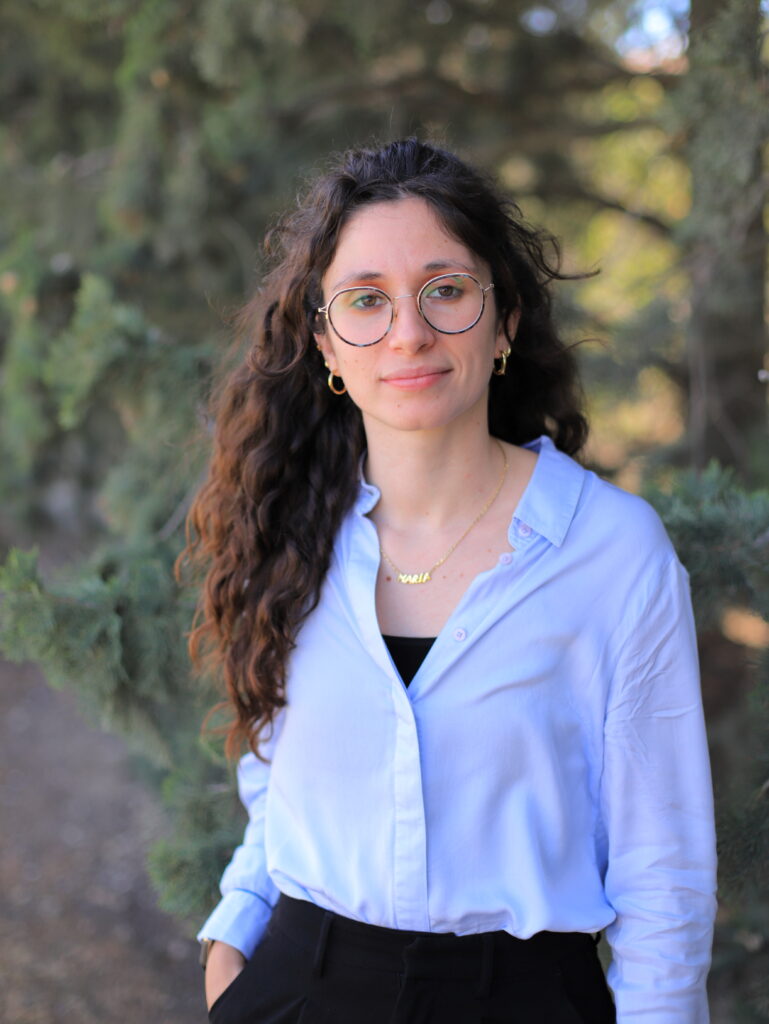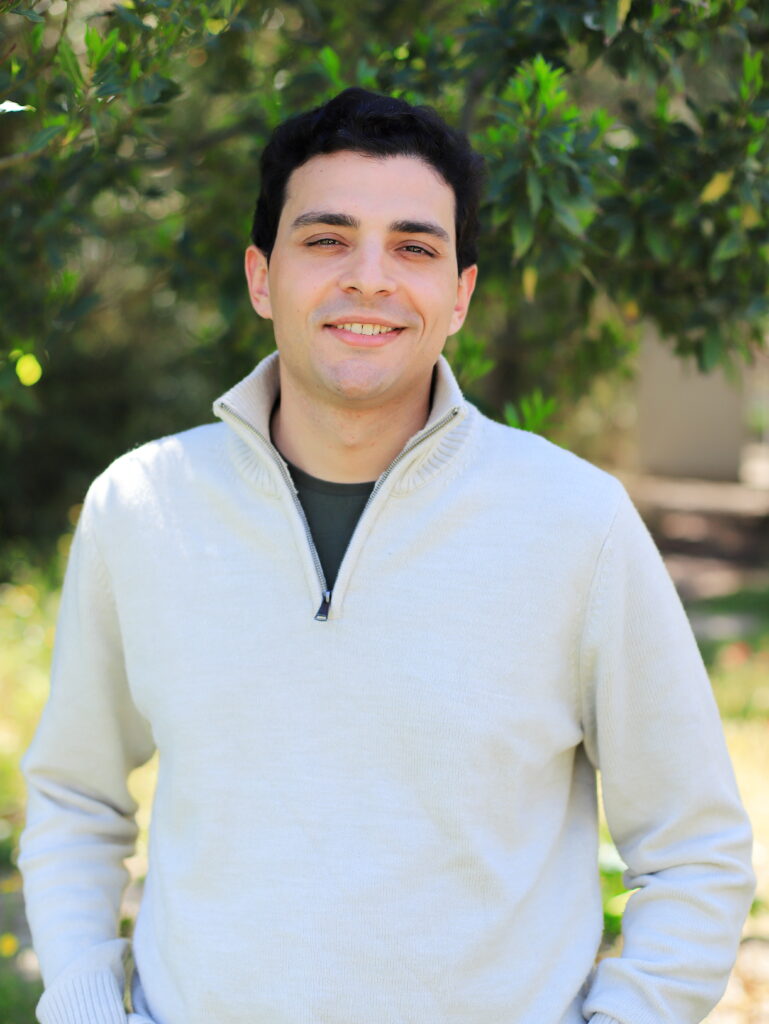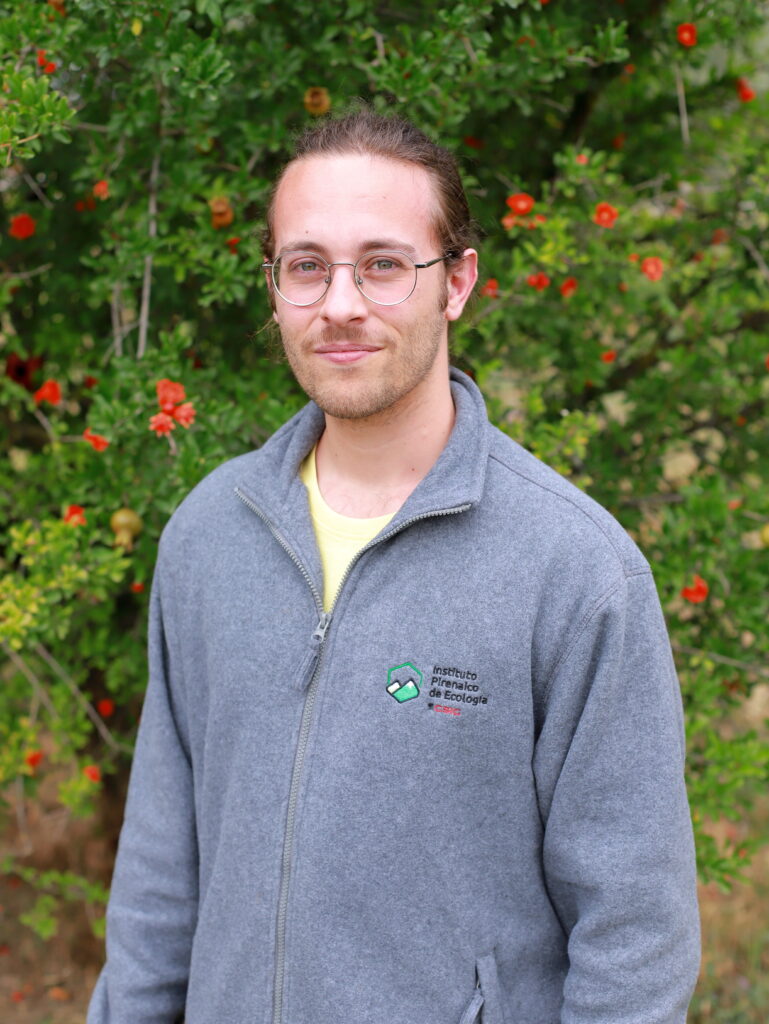Sergio M. Vicente-Serrano Full Professor at the Pyrenean Institute of Ecology. His primary focus
is on various topics related to global change, encompassing the study of
landscape and vegetation changes in the Mediterranean region, as well as
diverse hydrological and climatic processes analyzed across different
spatial and temporal scales. Specifically, he has delved into the impact
of atmospheric circulation mechanisms on water resource availability,
climate change assessment through observations, and the study of
droughts from various perspectives. This includes developing drought
indices to enhance the quantification of this intricate phenomenon and
assessing drought impacts on the environment and water resources
(https://scholar.google.es/citations?user=SomUZHMAAAAJ). Sergio has
coordinated numerous research projects at the European level and has
published over 400 scientific documents, including eight books and more
than 270 articles in specialized international journals. Additionally,
he has made over 200 contributions at scientific conferences and
delivered more than 35 invited lectures. With extensive international
research experience, he has undertaken research stays in centers in
France and the United Kingdom. In terms of scientific impact, he boasts
an h-index exceeding 70, with his works accumulating over 25,000
citations. He is recognized as the Spanish scientist with the greatest
impact in the fields of meteorology and atmospheric sciences
( https://grupodih.info/tierra.html). In recent years, he has been listed
among the world’s most cited researchers by Clarivate Analytics-WoS.
Moreover, he ranks among the top 15,000 researchers globally on the
World’s Top 2% Scientists list published by Stanford University, and in
2021, he was included among the 1,000 most influential global scientists
in climate change by Reuters. He has received various awards in
acknowledgment of his academic activity and research work. Sergio has
served as an External Advisor to the Expert Group on Climate Risks and
Sectoral Indices (ET-CRSCI) of the XV Commission on Climatology of the
World Meteorological Organization. He was the lead author of Chapter 11
in the recent sixth IPCC report on the physical bases of climate change.
Currently, he is the coordinator of Objective 2 of the Science-Policy
Interface for the 2020-2023 period of the United Nations Convention to
Combat Desertification (UNCCD).
Santiago Beguería Portugués Doctor in Physical Geography from the University of Zaragoza (Spain) since 2003, and researcher (OPI Research Scientist) at the Experimental Station of Aula Dei (EEAD-CSIC) since 2007. Previously, he was a postdoctoral researcher at the University of Utrecht (The Netherlands) and at the Pyrenean Institute of Ecology (IPE-CSIC). He served as Scientific Director (2009-2012) and Coordinator (2013-2015) of the Earth Sciences section of the National Agency for Evaluation and Foresight, ANEP. He was also deputy director of EEAD-CSIC between 2010 and 2018. He has worked as a researcher in more than 20 R&D projects, including European Framework Programmes 6, 7 and 8. He has been principal investigator (PI) of three national projects of the Spanish Government (CGL2011-24185, CGL2014-52135-C3-1 -R, CGL2017-83866-C3-3-R) and national coordinator of an ERA-NET Mountain project (PIM2010ECR-00726) and two Interreg projects (EFA082 / 15, SOE1 / P5 / F0026). He is currently principal coordinator of an ERA-NET Waterworks project (PCIN-2017-020) and an INTERREG POCTEFA project (EFA210 / 16), Principal Investigator of a national project (CGL2017-83866-C3-3-R) and group coordinator of an Interreg project (EFA346 / 19). As a Research Professor he has received a total funding of 2,841,362 €.
He has authored or co-authored more than 170 scientific publications, including more than 130 articles in international peer-reviewed journals. These publications have received more than 8,000 citations in ISI-JCR journals, making him a highly cited researcher by Clarivate Analytics- WoS (2019).
He is coordinator and professor of the postgraduate course on Spatial and Temporal Data Analysis with R co-organized by the Spanish Society of Climatology (AEC), CSIC and the University of Zaragoza (8 editions between 2010 and 2018), and coordinator and professor of the Introductory Course on Data Analysis with R organized by AEC-CSIC (5 editions, 2014-2018). He is also supervisor of six PhD students. His main research topics are hydrology and climatology; water resources, climate hazards and agroclimatology; soil erosion and sediment sources; numerical simulation and statistical analysis of spatial and temporal data.
José Carlos González Hidalgo Graduate in Geography (Oviedo, 1984), Master of Science CIHEAM-IAMZ (Zaragoza, 1988) and PhD in Geography (Zaragoza, 1992). He has been a lecturer at the universities of Alicante and Zaragoza, where he has taught Climatology since 1999. Visiting researcher (2009) at ISAC-CNR (Bologna, Italy) and visiting professor (2014) at the University of Turin (Italy). Since 2013 he is Professor of Physical Geography at the University of Zaragoza. Co-author of the monthly precipitation databases MOPREDAS (1945-2005) and monthly mean temperatures of Spain MOTEDAS (1951-2010), and their secular extensions (MOPREDAS_century and MOTEDAS_century, 1915-2020). Author and co-author of more than 70 papers in indexed journals and more than one hundred communications at international conferences. He has directed and co-directed several PhD and MSc theses, and in 2017 he was appointed president of the commission Dottorato in Scienze Ambientali – XXIX CYCLE, Università degli Studi di Miano.
Fernando Domínguez Castro Senior Researcher (Científico Titular) at the Pyrenean Institute of Ecology (IPE-CSIC). His principal research focus lies in the study of the climate variability of the last 500 years, particularly emphasizing the study of extreme meteorological and hydrological events and their societal impacts. He has developed seminal works using documentary sources to reconstruct climate variability in Spain and Latin-American, leading international initiatives in the rescue of climatic information as EMERLAC (Early meteorological records from Latin-America and the Caribbean) or INPRO (International Propluvia Rogation). He has also worked in the study of climate variability and the generation of climate services from instrumental information. In this field, he collaborated in creating a climate service for Europe with 125 climate indices with profound implications for various economic sectors. Additionally, he collaborates in stablishing drought motoring systems for Spain and globally. Throughout his career, Fernando has held positions in various scientific institutions in Spain, including Instituto Geológico y Minero de España, Universidad Complutense de Madrid, Universidad de Extremadura, Aragonese Foundation for Research and Development and Universidad de Zaragoza. He has also worked abroad at institutions such as the United Stated Geological Survey (USA), Istituto di Scienze dell’Atmosfera e del Clima (Italy), Escuela Politécnica Nacional e Instituto Nacional de Meteorología e Hidrología (Ecuador). He has been the principal investigator of 4 research projects and have participated as researcher in other 15 (6 European, 11 nationals, and 2 regionals). He has served as editor for international journals such as Climate of the Past and Natural Hazards and Earth System Science, and he currently is editor of Scientific Data. His work has been disseminated through more than 100 scientific publications indexed in the Journal Citation Reports.
Borja Latorre Graduated in Physics and PhD in Computer Science. He works as a data scientist at Aula Dei Experimental Station (EEAD-CSIC). His research work focuses on the development of methods/algorithms/models with application in climatology, agronomy and soil science. He has published more than 70 papers in international journals and has participated in 18 research projects.
Dhais Peña Angulo Assistant Professor at the University of Zaragoza. She teaches in the Environmental Sciences degree at the Higher Polytechnic School of Huesca, in the Geography and Land Use Planning degree, in the Master’s program in Geographic Information Technologies for Land Use Planning: Geographic Information Systems and Remote Sensing, and in the Master’s program in Land Use Planning and Environmental Management at the University of Zaragoza. Her research focuses on the field of climatology and natural risk, specifically the analysis of natural extreme events and their relationship with human activities.
Ahmed El-Kenawy is a climate scientist, holding an MSc in Environmental Informatics from the UK (2007) and a PhD in Physical Geography from Spain (2012). With a robust multidisciplinary background encompassing geography, atmospheric dynamics, and data analysis, Dr. Kenawy contributes significantly to current understanding of the atmospheric system, its intricate processes, and the complex interactions between humans and the environment across various spatial and temporal scales. As a prominent authority in the field of climatic variability, Dr. Kenawy specializes in research within the North Africa and Middle East (MENA) region. His extensive body of scholarly work has resulted in influential publications that have made substantial contributions to comprehension of climate change and variability across an expansive geographical area, encompassing countries such as Egypt, Libya, Saudi Arabia, Syria, Oman, Iraq, Qatar, and the entire MENA region. Dr. Kenawy’s research spans diverse and interdisciplinary domains, with a particular focus on natural hazards, including droughts, aridity, and heat waves. Additionally, he investigates the impact of human-induced warming effects, such as urban heat islands. His academic portfolio comprises over 120 peer-reviewed articles, which have garnered more than 4,900 citations (https://scholar.google.com/citations?user=oWXytHkAAAAJ). Dr. Kenawy’s dedication to advancing climate science extends to his service on the editorial boards of various prestigious international journals, including the Journal of Water and Climate Change, PLOS Climate, Scientific African, Big Earth Data, Euro-Mediterranean Journal of Environmental Integration, and Journal of Hydrology.
Magí Franquesa Fuentetaja Bachelor’s degree in Biology (Balearic Islands, 1997), Master’s in Geographic Information Systems and Remote Sensing (Zaragoza, 2014), and PhD in Geographic Information Technologies (Alcalá, 2022). He has been part of the Global Change and Fire Ecology group (FIREC) at the University of Castilla-La Mancha (Toledo) and the Environmental Remote Sensing research group (GITA) at the University of Alcalá. He completed his doctoral thesis within the framework of the ‘Fire Disturbance’ project (FireCCI) of the European Space Agency (ESA) and the ‘provision of essential climate variables’ project of the European Union’s Earth Observation program, Copernicus. His research has focused on the development and validation of global burned area products derived from satellite data. He is currently a postdoctoral researcher in the ‘Juan de la Cierva’ program, at the Pyrenean Institute of Ecology (IPE), a research center belonging to the Spanish National Research Council (CSIC), based in Zaragoza (Spain).
Beatriz Fernández Duque Hold a PhD in Physics by the University of Valladolid (Spain) in 2021. Currently, she is a researcher granted by the “Juan de la Cierva” program awarded by the Spanish Ministry of Science. She works at the Pyrenean Institute of Ecology (IPE), a research centre that belongs to the Spanish National Research Council (CSIC) based in Zaragoza (Spain). Her main research activity is focused on different topics related to atmospheric physics, including air pollution and climatology spatio-temporal analysis. She has been trained at different European universities such as the University of Maynooth (Ireland) in the Irish Climate Analysis and Research UnitS (ICARUS), the University of Aveiro (Portugal) in the “Atmospheric Processes and Modeling” group, the University of Thessaloniki (Greece) in the “Regional Climate Modeling” or the prestigious Norwegian Institute for Air Research – NILU (Norway) among others. Besides, she has participated in different projects related with air pollution and extreme climatologic events. Her research contribution has led to the presentation of her work in different conferences as well as the publication of several scientific articles in high-impact indexed journals.
Ángela Manrique Alba She studied Forestry Engineering, then she conducted her thesis on ecohydrological relationships in pine forests in environments with water scarcity. In her postdoctoral period, she worked at the EEAD-CSIC (Zaragoza).
Researcher contracted at Centro de Investigaciones sobre Desertificación (CIDE-CSIC, Valencia). Her research focuses on assessing climate change impacts on forest ecosystems and the capacity of forest management to improve forest resilience and growth. The main goal of her line of work is to develop a comprehensive analytical framework to measure resistance, resilience, and recovery of tree stands, as well as the legacy effect of thinning, through a combination of field work, stable isotopes analysis and growth models.
Leticia Palazón Tabuenca PhD in Geology by the University of Zaragoza, based on studies conducted at the Estación Experimental de Aula Dei (EEAD-CSIC) through the study of erosion using hydrological modeling and fingerprinting for sediment source attribution. Her main research at EEAD-CSIC focuses on the simulation of hydrographic basins using climatic, hydrological, and geophysical data for the study of the different components of the water balance and water resources, both for historical periods and future scenarios under different regional climate models.

Inna Semenova She is a Doctor in Geographical Science, professor of the Odesa State Environmental University, Ukraine. Her research focused on the analysis of high impact meteorological and climatological events and associated anomalies in atmospheric processes, including atmospheric blocking. Last studies devoted to spatiotemporal evolution and trend analysis of the drought in Ukraine in past, present and future. The previous studies were in the field of the dynamics and energetics of the regional synoptic processes related to extreme weather phenomena.
Daniel Vilas Perulán Computer Science Engineer, lately focused on containerized architectures and proprietary blockchains such as HyperLedger Fabric. Having participated in projects of various kinds from mobile programming to electronic signature, including backends. Interested in embedded systems and predictive models with IA-ANNs.
Marcos Gil Guallar Graduate in Computer Engineering, he is currently studying for a master’s degree in statistical data analysis at Ghent University. He works as a data scientist at the Experimental Station of Aula Dei (EEAD-CSIC). His work focuses on the development of climate grids, statistics and indexes, which are the basis for the implementation of various climate monitoring services. In other work experiences he has also worked as a data engineer.
Alejandro Royo Aranda He works as data scientist at the Pyrenean Institute of Ecology (IPE-CSIC). Graduated in Economics (University of Zaragoza), he completed a master’s degree in Big Data & Data Science from UNED and is currently pursuing one in Mathematical Modeling, Statistics, and Computing (University of the Basque Country and University of Zaragoza). He has always maintained a special interest in mathematical and, above all, statistical modeling of reality. Currently, his work focuses on contributing to the development of group software libraries geared towards data flow, collaborating in index calculations and exploring new methodologies, algorithms and models to enhance geostatistical interpolation in the field of climatic data.
Eduardo Moreno Lamana He works as a programmer analyst at the Pyrenean Institute of Ecology (IPE-CSIC). Industrial Engineer, self-taught in computer science and passionate about free software and more and more about free hardware. He has worked in almost all aspects of Computer Science (electronics, software development and system administration). Enthusiastic about documentation and organisation on a personal and professional level.
Javier Frégola Mur He studied Journalism at the University of Zaragoza and later specialised in Audiovisual Production. It is in this field where he has had the opportunity to participate in the creation of two award-winning environmental documentaries.
He has worked as head of communication at the Pyrenean Institute of Ecology (IPE-CSIC) and in citizen science projects such as “Necesito un cambio de aires!”.
He is currently manager of the Interdisciplinary Thematic Platform Climate and Climate Services of the CSIC, for which he is also responsible of communication.
Fergus Reig Gracia is a programmer analyst who has been focused on hydrology and climatology for a few years. He has participated in programming, computation and online publication of indexes such as the SPEI and the NDVI. Previously, he worked in other fields such as medieval literature and mobile phone applications.
Víctor Trullenque Blanco Pre-doctoral researcher at the Department of Geography and Land Management of the University of Zaragoza and member of the research group Erosion and Evaluation of Soil and Water of the Experimental Station of Aula Dei (EEAD-CSIC). Graduate in Environmental Sciences and Master in Geographic Information Technologies for Spatial Planning: GIS and Remote Sensing.
He has collaborated in several R+D projects funded by the Statal Agency of Research (CGL2017-83866-C3-1-R: The climate of the last century in peninsular Spain; PID2020-116860RB-C22: Thermal and pluviometric extremes in peninsular Spain, 1916-2020) and the Biodiversity Foundation (Analysis and monitoring of climatic aridity in Spain. ARISPED. I023), and has been the recipient of two personal research grants (CEHIMO 2020, CESB 2021). All this has allowed him to be author or co-author of numerous scientific publications in international peer-reviewed journals, conference papers, climate databases, web pages and other technical products.
Within the Laboratory of Climatology and Climate Services its research activity deals with different topics related to climatology and statistical analysis of spatial and temporal data: historical climate reconstruction from documentary sources, reconstruction and homogeneity of climate databases, temporal variability and trends in precipitation and temperature, relations between atmospheric circulation and climate at different spatial scales, development of databases to identify and study the intensity, duration and variability of droughts, etc.
Another of his research lines is the study of changes in the morphology, landscape and vegetation of fluvial courses of the Mediterranean region and the different hydrological processes associated within the current context of Global Change.
María del Mar Rondón Velasco Graduate in Mathematics, she is currently studying for master’s Degree in Mathematical Modelling and Research, Statistics and Computing (University of the Basque Country and University of Zaragoza). She completed a master’s degree in Big Data and Business Intelligence at the University of Nebrija. She works as a data scientist at the Experimental Station of Aula Dei (EEAD-CSIC). Her work focuses on the design of algorithms and different geostatistical interpolation models for climate data. Also, she collaborates in the development of climate grids, statistics, and indexes, with the aim of implementing them in the monitoring of climate services.
María Adell Michavila Graduate in Geography and Environment (Universitat de València, 2020) with a master’s degree in Biodiversity, conservation and evolution (Universitat de València, 2021) and in Geographic Information Systems and Remote Sensing (Universidad de Zaragoza, 2022). Her research activity is focused on the use of remote sensing techniques through satellite images for the analysis of the state and dynamics of different vegetation covers. She has worked for the project Dynamic analysis of the resilience of Forest Landscapes affected by Fire using multisensor spectral indicators (PaF) (PID2020-118886RB-I00) and has been part of the research group Geoenvironmental Processes in forest areas (GEOFOREST). Currently hired by the project Long-term evaluation of changes in vegetation cover in Spanish national parks and its connection with the processes of VAriability and CLimatic change (CUVACLI).
Amar Halifa Marín BSc in Geography (since 2017), MSc in Water Management and
Technology (2019), and PhD in Atmospheric Sciences (2023). He brings extensive expertise in understanding the winter atmospheric dynamics in the Northern Hemisphere, particularly focusing on the modes of climate
variability in the North Atlantic, the mechanisms driving its multidecadal variability, and its implications on the climate and water planning of Europe. Consequently, his current research focus is dedicated to associating uncertainties in climate projections with the ability of global models to accurately capture the atmospheric dynamics as observed. Furthermore, his hard skills include proficiency in massive
data analysis, mastery of programming languages dedicated to data analysis (such as R and Python), or system management (bash), and effective oral and written communication of scientific findings. He has
authored numerous impactful international scientific publications and has been a selected speaker at various international conferences. His soft skills encompass creativity, versatility, and problem-solving
abilities, meticulous attention to detail, leadership, and self-task management for optimizing outcomes, empathy, and emotional intelligence for fostering efficient teamwork, as well as responsibility and
strategic vision for project management and completion. Amar joins the Climate Climatology and Climate Services Laboratory at IPE-CSIC as a full-time research dedicated to addressing scientific challenges within
the PTI+ Climate project PTI+ Clima.
Antonio Torralba Gallego Graduated in Mathematics from the University of Zaragoza, he completed a professional master’s degree in Big Data & Business Analytics at IMF Business School in collaboration with the University of Nebrija. He is currently pursuing a master’s degree in Secondary Education with a specialization in Mathematics at the University of Zaragoza. He works as a data scientist at the Pyrenean Institute of Ecology (IPE-CSIC). His work focuses on the development of data flows for the processing of short-term forecasts of climate grids, statistics, and indexes, which form the basis for the implementation of various climate monitoring services.
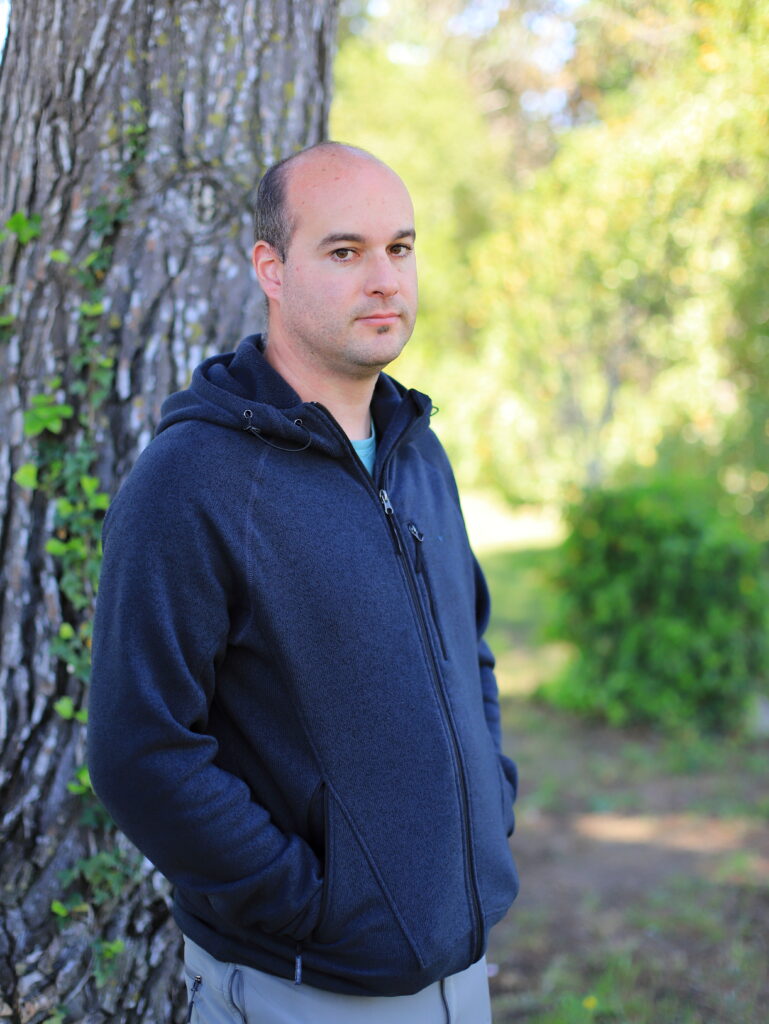
David Lasanta Santolaya Higher Technician in “Management and Organization of Agricultural Companies”, “Energy Efficiency and Solar Thermal Energy” and finishing the degree in “Forest and Natural Environment Management”. He works as manager of some field trials of the Pyrenean Institute of Ecology (IPE-CSIC) regarding the mechanisms of heat waves and droughts in Spain. Its main functions include the management of tillage and harvesting practices in the crop fields where the experiments are carried out, the management of scientific instruments, the collection of information and its management in databases.
Javier Vela Tambo Graduate in Computer Engineering (University of Zaragoza, 2023) with a specialization in Computer Science. Currently working as a Data Scientist at the Pyrenean Institute of Ecology (IPE-CSIC), focusing on using Natural Language Processing (NLP) techniques for climate data extraction and classification. His previous research includes various applications of large language models (LLMs), such as cross-lingual ontology alignment and compiler flags prediction for source code optimization. Additionally, he worked on a project on the design of fault tolerance mechanisms for distributed simulations. Javier has collaborated with the University of Zaragoza and the University of Rhode Island. He is proficient in cloud technologies, automation, and various programming languages including Python, Rust, and C++.
Collaborators
Iván Noguera Corral PhD in Geography from the University of Zaragoza (Spain). Currently, he is a drought analyst at the UK Centre for Ecology & Hydrology (UKCEH). His research is mainly focused on climate variability under the actual context of global change, with special emphasis on natural hazards such as droughts. He has worked in the study of droughts from different points of view, including the detection, quantification and monitoring of drought by means drought indices, their spatiotemporal characterization, the identification and assessment of drought drivers, and the analysis of the atmospheric mechanisms involved in the occurrence of such extreme hydro-climatic events. In particular, it has developed new methodologies for the assessment of flash drought, which has improved knowledge of this phenomenon in Spain.
Miquel Tomas Burguera PhD in Geography from the University of Zaragoza since 2019, developing his research at the Experimental Station of Aula Dei (EEAD-CSIC). He has enjoyed several post-doctoral contracts (Make Our Planet Great Again, Margarita Salas) to continue his research at the Centre National de Recherches Météorologiques (CNRM – France).
He focused his research on the study of evaporative demand and its impacts on climatology, ecology or hydrology. He has also shown great interest in extreme phenomena, such as droughts or floods.
He is currently working at the Balearic Islands Natural Risks and Emergencies Observatory Islands (RiscBal), focusing on the development of early warning systems for the most relevant natural risks affecting the Balearic Islands (i.e. floods, forest fires, gravitational and climatic movements).
Cesar Azorin-Molina Is a Senior Scientist (Científico Titular) at the Desertification Research Center (CIDE, CSIC-UV-GVA, Valencia), and group leader of the Climate, Atmosphere and Ocean Lab (Climatoc-Lab; https://climatoclab.csic.es) . His main scientific aim is to assess and attribute long-term changes and multidecadal climate variability with focus on wind speed and extremes over both land and ocean surfaces, and their socioeconomic (e.g., wind energy) and environmental (e.g., wind erosion) implications. His climate research is mainly based on observations and climate simulations. As head of the Climatoc-Lab, one his goals is to develop wind services and products in the framework of the CSIC PTI+ “Climate and Climate Services”. He has published more than 140 SCI peer-reviewed articles in the fields of Meteorology and Atmospheric Sciences, with an h index of 48 and >10,000 citations. He has been PI of various research projects funded by public and private agencies at national and international level.
Jorge Lorenzo Lacruz Tenured Lecturer at the University of La Rioja in the area of Regional Geographic Analysis. His research focuses on hydro-climatic interactions and extreme events, especially droughts and floods. Jorge has published over 80 scientific contributions, 45 of which are articles in international journals (Google Scholar Profile) with a high number of citations (> 4000). He has participated in 14 research projects. Lately, Jorge has broadened his scientific interests towards high-resolution geomorphological studies. Jorge has taught over 1600 hours of university-level courses, primarily in the fields of cartography, geographic information systems and remote sensing, and has supervised around twenty academic works and 2 doctoral theses.
Ying Pan Pre-doctoral researcher at the National Key Laboratory of Water Disaster Prevention, Hohai University, China. She was awarded a scholarship by the China Scholarship Council and works for one year in Climatology and Climate Services Laboratory at the Pyrenean Institute of Ecology (IPE), a research centre that belongs to the Spanish National Research Council (CSIC) located in Zaragoza (Spain). Her research interest is in Eco-Hydrology, the impacts of climate change and anthropogenic factors on global terrestrial ecosystem is the main focus of her PhD thesis.










